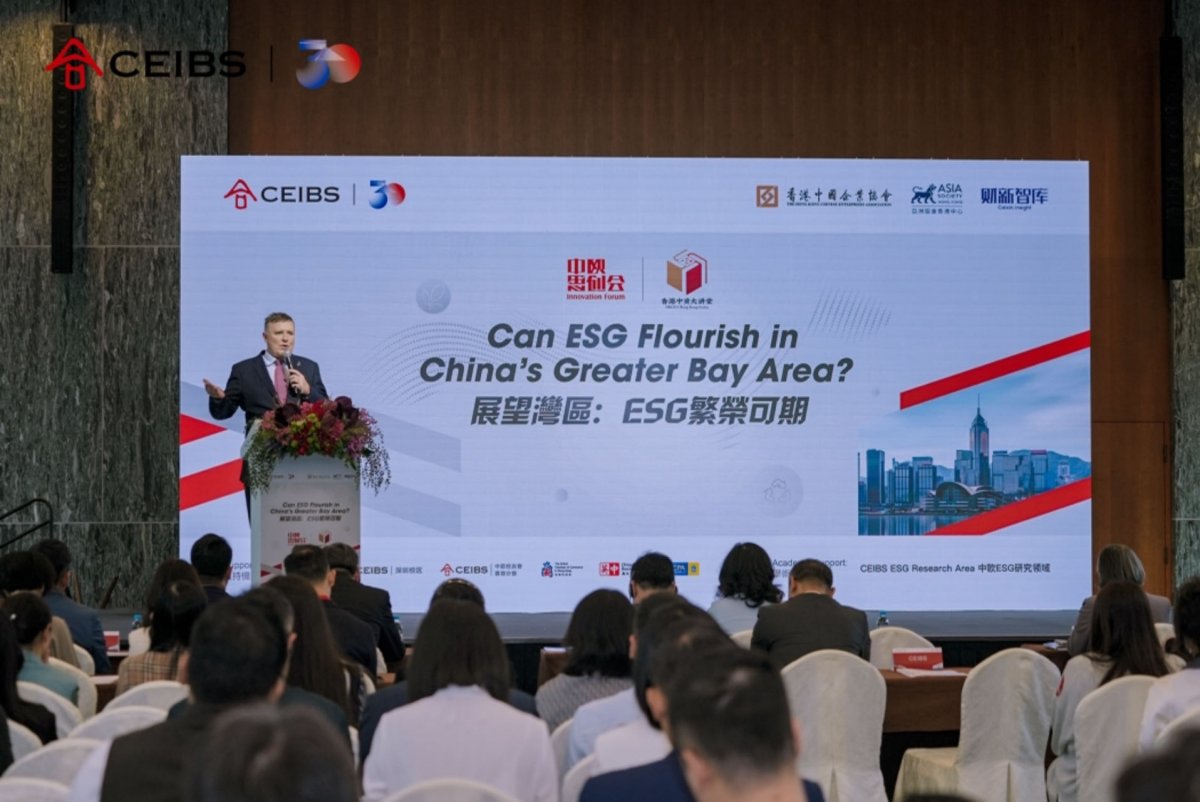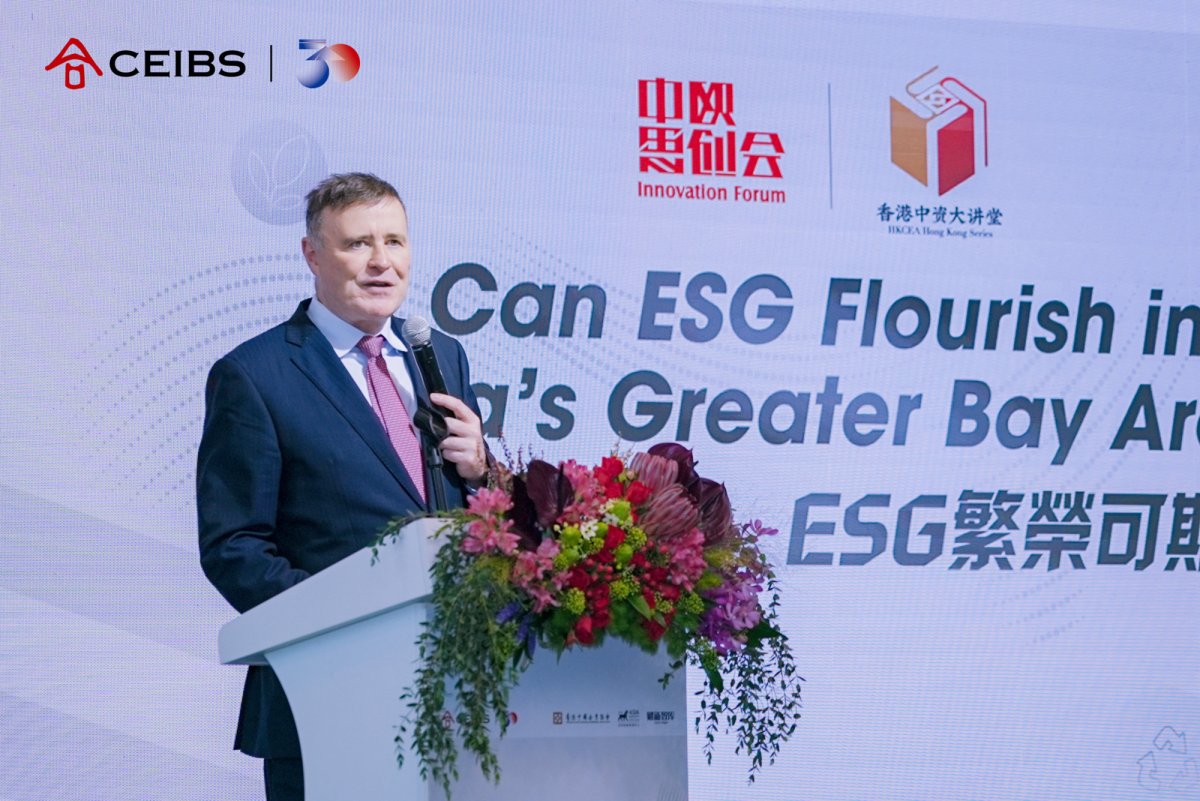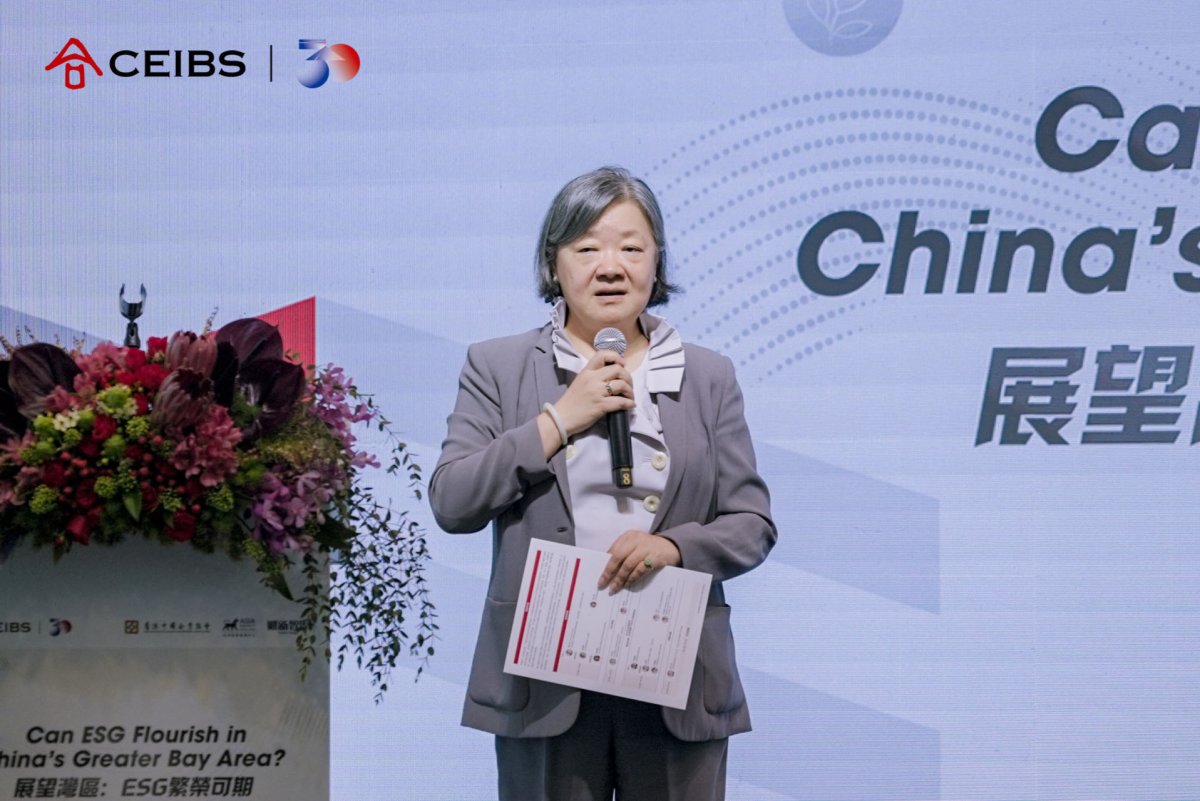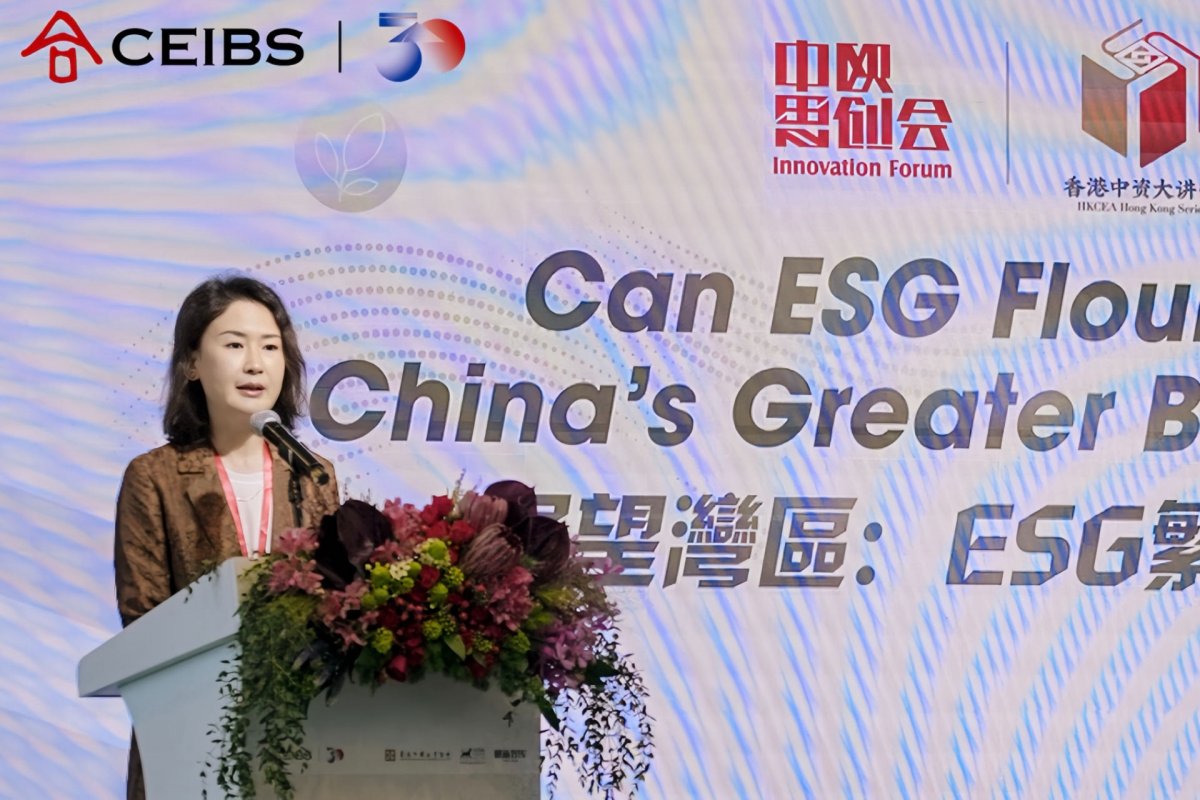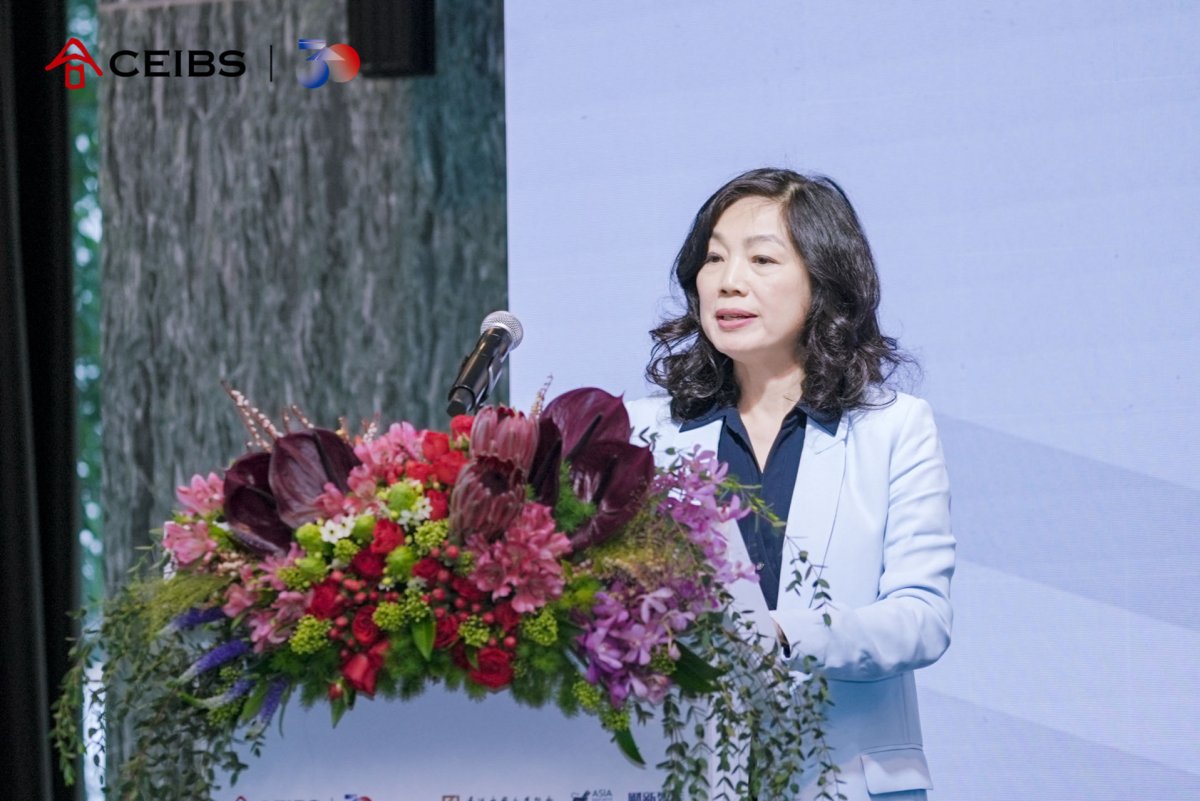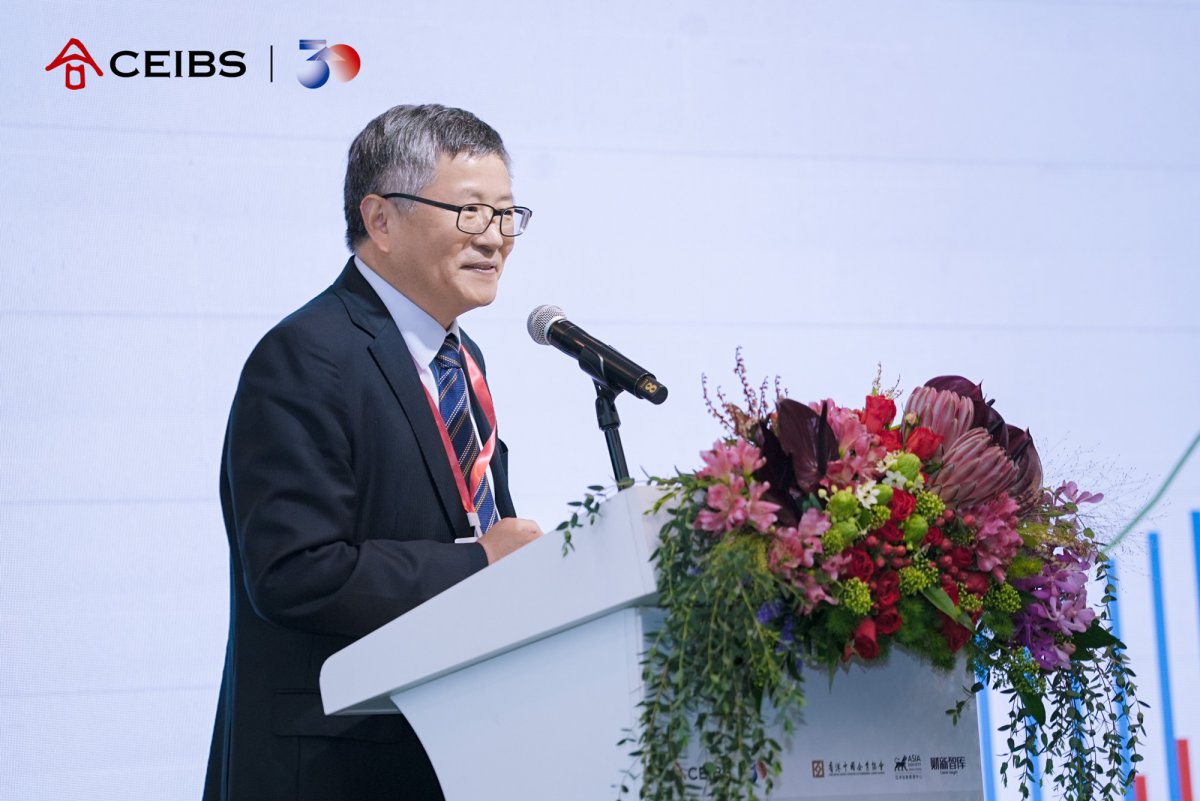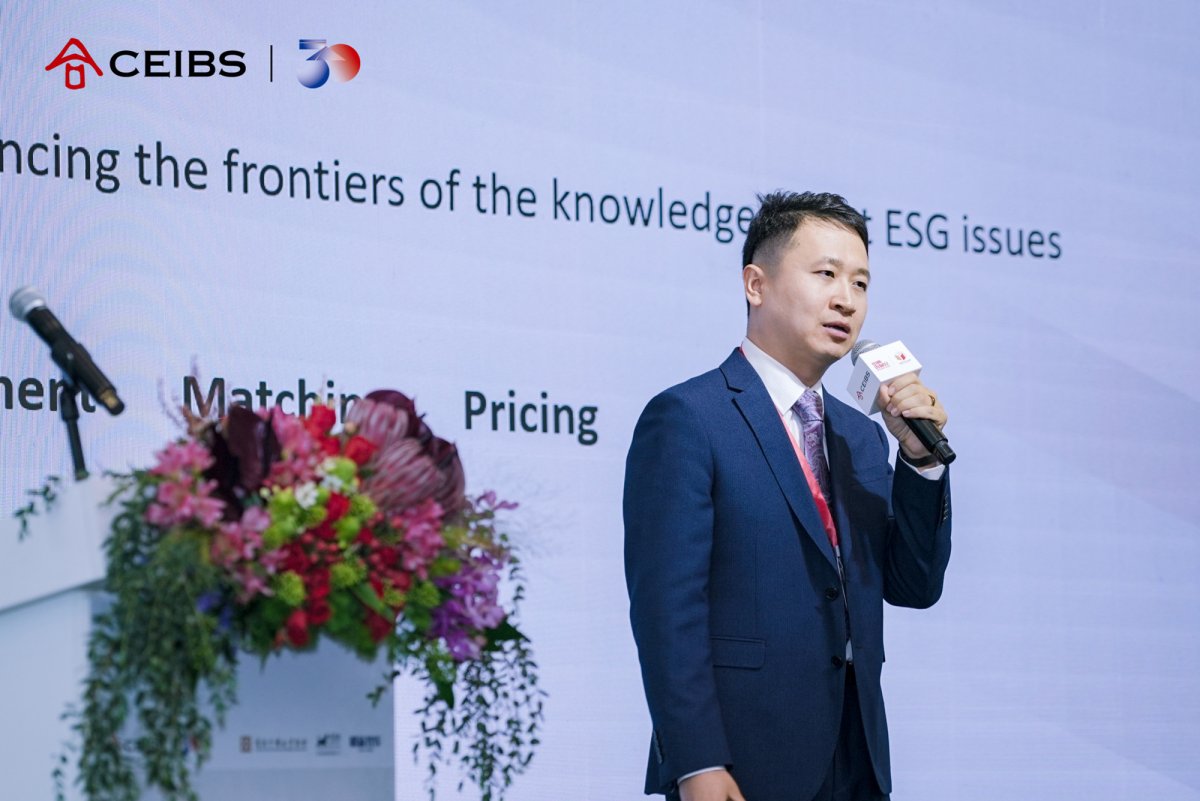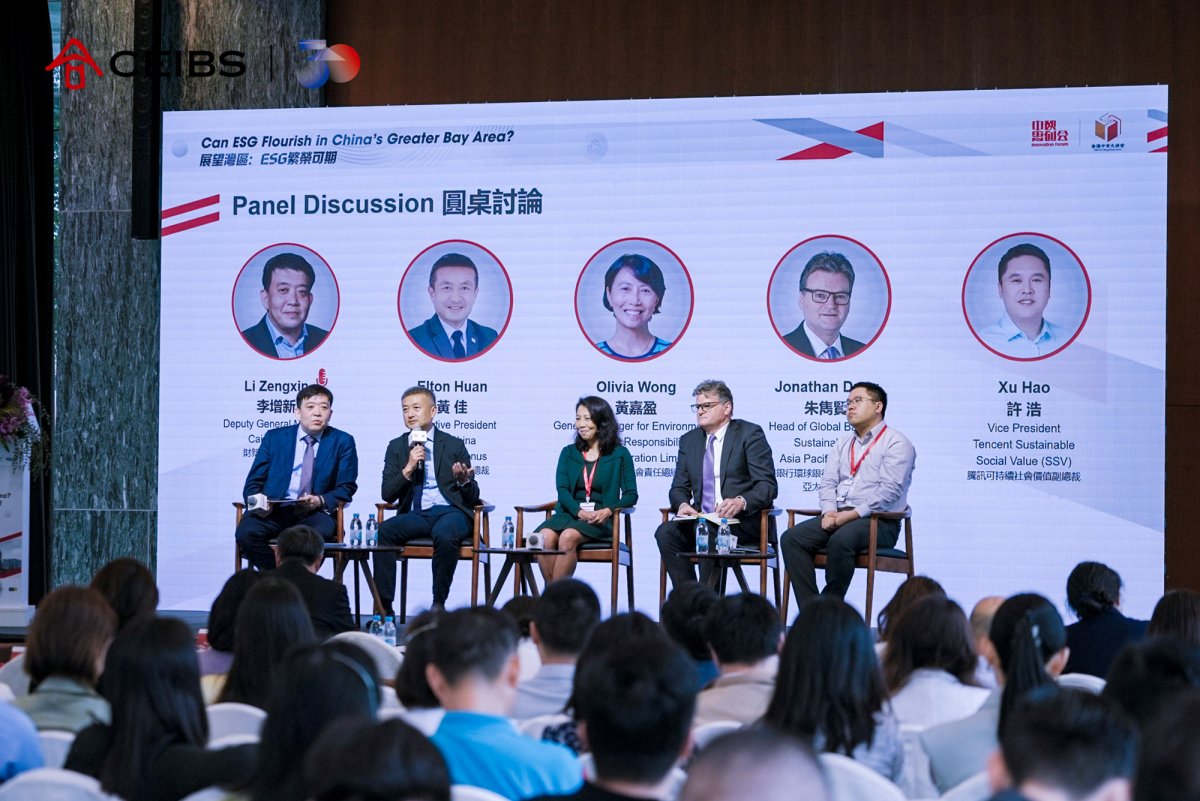ESG and economic integration will play a vital part in the development of China’s Greater Bay Area
May 30, 2024. Hong Kong – The Greater Bay Area is symbolic of China’s economic transformation over the past four decades, standing today as an innovation hub and economic gateway to the global market. As a meeting point of East and West in the realms of business, finance, and culture, this is a region that always has something important to say about China’s economic future.
Here, just as they are around the globe, Environmental, Social, and Governance (ESG) initiatives are becoming an increasingly important part of this story. A survey in 2023 found that two in three GBA firms had adopted sustainable practices, with green financing deals in the region climbing to record highs in the same year and investment by GBA firms predicted by some to reach US$127.8 billion by the end of 2025. The Shenzhen Stock Exchange, meanwhile, under the instruction of the China Securities Regulatory Commission (CSRC), recently released Sustainability Report guidelines, providing important general principles and frameworks for listed companies disclosing their actions relating to sustainability. Developments in ESG, from new environmental frameworks to the trend toward “rational sustainability”, are sure to be felt as strongly here as elsewhere in the world.
On May 30, 2024, these topics and more were highlighted at an international forum on the theme "Can ESG Flourish in China's Greater Bay Area?", organised by CEIBS in collaboration with the Hong Kong Chinese Enterprises Association, Asia Society Hong Kong Center, and Caixin Insight. Attracting more than 240 attendees, including government officials, experts, scholars, and entrepreneurs, distinguished speakers from various fields came together to discuss topics such as macroeconomic trends in the Greater Bay Area, the future potential of ESG investment, ESG value creation, and more.
CEIBS Vice President, Dean, and Chief Impact Officer Professor Frank Bournois acted as host. In his opening remarks, he noted the central importance of ESG to CEIBS pedagogy, noting that all programmes contain a minimum of 10% ESG-related courses (20% in the cases of the MBA and Global EMBA programmes), that the subject is a core research area for the school, and that CEIBS is proud to have been the first carbon neutral business school in Asia.
Delivering a welcome address, S. Alice Mong, President of Asia Society Hong Kong Center, noted the shared values of her organisation and CEIBS as institutions that emphasise life-long learning, asserting that “learning doesn’t end when you get your diploma.”
In a second welcome address, Caixin Media President Zhang Lihui highlighted the long-lasting relationship between CEIBS and Caixin. Citing climate change, income inequality, and aging populations as key challenges facing societies around the globe, she emphasized that ESG is an important criterion for measuring corporate and investment activities. Ms. Zhang stated that since 2018, Caixin has paid attention to the development of ESG both in China and around the world, providing information through ESG columns, annual forums and white papers. Their work demonstrates, she said, that ESG has shown strong resilience and made progress in regulation and investment, with global regulators working hard to address ESG investment issues such as data disclosure, standards, and ratings, with China also actively promoting listed companies to disclose ESG information.
Salina Yan, Permanent Secretary for Financial Services and the Treasury (Financial Services) for the Hong Kong Special Administrative Region Government, delivered an opening address. She said that as an international financial centre, Hong Kong has come a long way in its ESG journey. The Hong Kong Exchanges and Clearing Limited has been a pioneer in promoting ESG practices of listing companies, she said, requiring listed companies to produce annual ESG reports, and has been conducting periodic reviews of listed companies’ ESG disclosures since 2016. It has also recently published the new climate-related disclosure requirements, based on the IFRS S2 Climate-related Disclosure, for implementation by listed companies from January 2025 under a phased approach. Ms. Yan remarked that, with a population of around 87 million, over RMB14 trillion GDP, and complementary economic activities, there is a lot of room to create synergy with other cities in the GBA. As Asia’s green finance hub, Hong Kong's capital market has also been channelling international capital to sustainable projects in Asia, Ms. Yan asserted, noting that as of the end of 2023, 219 ESG funds were authorised by the Securities and Futures Commission in Hong Kong, with assets under management over HK$1,300 billion, while the volume of green and sustainable bonds arranged in Hong Kong had topped the Asia market in 2023, accounting for 37% of the total. Hong Kong’s importance to the prosperous development of ESG in the Greater Bay Area, Ms. Yan commented, has been fully demonstrated.
In the first keynote speech of the event, CEIBS Professor of Accounting, Essilor Chair in Accounting, and Associate Dean Xu Dingbo gave a presentation on “The Economic Integration and Development of the Greater Bay Area in a Changing Environment”. Professor Xu began by outlining reasons to be optimistic about China’s economic prospects, highlighting factors including dominance in global semiconductor exports and imports and consistent GDP growth as notable positives.
Examining the integration of the Greater Bay Area economies, Prof. Xu said that Hong Kong must integrate more closely with mainland China, while nevertheless maintaining its unique characteristics, such as its unrivalled prowess in financial services. In conclusion, Prof. Xu urged members of the audience keen on following the Greater Bay Area’s development to keep a close eye on transaction costs, openness of the economy, the global movement of talent, rule of law, and free flow of information, asserting that “data is power.
This was followed by a second keynote speech by CEIBS Assistant Professor of Finance Shan Hongyu, entitled “130 Years of Corporate Social Responsibility: What Have We Learned from the Great Minds?”. Prof. Shan opened by noting that, following the 2008 financial crisis, many questioned the continuing wisdom of the theories of economist Milton Friedman; however, Friedman’s four often ignored micro-foundations still hold, namely Horizons, Open and Competitive Markets, Institutions, and Shareholder Welfare.
Prof. Shan went on to outline how, using AI, researchers have been able to track mentions of ESG-related topics over time, revealing that they have been seen as important for at least 130 years and going on to provide insight into the evolving nature of discussions regarding ESG. Overarching themes such as “pollution”, “discrimination”, and “inequality”, research shows, have long been present in the public discourse: they have simply changed focus, with different terminology used over time.
Using the same data and techniques, Prof. Shan noted that research has also demonstrated that public attention to social issues rises amid internal economic and social instability during times of high volatility in GDP growth. Conversely, public attention to environmental issues rises during times of relative prosperity that are nevertheless experiencing heightened political and ideological division. In describing these findings, he invited the audience to question whether, amidst a current focus on ESG issues, we are witnessing a new phenomenon or rather the predictable return of an established, cyclical changing of attitudes over time. Concluding by instructing the audience in how to think like an economist in the era of ESG, Prof. Shan encouraged attendees to “believe in the power of data and scientific approaches, address urgent problems with real-world implications, investigate in depth, think in breadth, and embrace the unknown.”
This speech preceded the launch of the CEIBS 2024 ESG White Paper, the seventh annual such paper released by CEIBS ESG Research Area. The topic of ESG was then further explored in a panel discussion, moderated by Deputy General Manager of Caixin Global Li Zengxin, who invited to the stage Executive President of GLP China and CEIBS EMBA 2012 alumnus Elton Huang, Vice President of Tencent Sustainable Value (SSV) Xu Hao, General Manager for Environmental and Social Responsibility of MTR Corporation Limited Olivia Wong, and Head of Global Banking Sustainability, Asia Pacific of HSBC Jonathan Drew to the stage to discuss the themes covered in the paper.
Each of the panellists shared the ESG practices of their respective companies and discussed how to create ESG value in the face of challenges such as climate change, social inequality, and disruptive technologies in the unique environment of the Greater Bay Area. All ultimately agreed that in the face of an uncertain future, the business community and society as a whole must cooperate to create inclusive and sustainable value, further promote the development of ESG, achieve more sustainable business models, and respond to the challenges of globalization.
The insightful panel discussion was followed by a third keynote speech from Charles Li, Founder and Chairman of Micro Connect Group and former Chief Executive of Hong Kong Exchanges and Clearing Limited (HKEX), who concluded the forum with a talk on “Implementing Social Responsibility Financing to Support the Prosperity of the Greater Bay Area Investment Ecosystem”.
Placing his own company Micro Connect, an exchange group that leverages financial technology to connect global capital with small businesses, in the context of ESG and the Greater Bay Area, Mr. Li described how traditional finance had previously excluded restaurants, “mom and pop stores”, and other small businesses. Mirco Connect, he said, connects global capital with local stores. “We are not forcing Wall Street to change – they will not change. But we can give them access reliably and in a scalable way to the grassroots of the economy,” Mr. Li asserted. “The little guys are ultimately the ones that create the most tangible impact on the economy, and that’s who we’re trying to help.
CEIBS Innovation Forum
The CEIBS Innovation Forum series was launched in 2015 and is committed to promoting the integration of knowledge and practice, while serving the transformation and development of business in China. The series provides insights into current business and economic trends with a focus on topics relevant to urban and regional development. To date, over 50 events have been held in 30 cities around China, where more than 300 speakers have contributed their views.
In 2024, after starting off strong with a first English-language forum in Beijing, the 9th Innovation Forum series will host events in Hong Kong (in English) and Luoyang, Hangzhou, Shijiazhuang, Changsha, Qingdao and Guangzhou (in Chinese).







